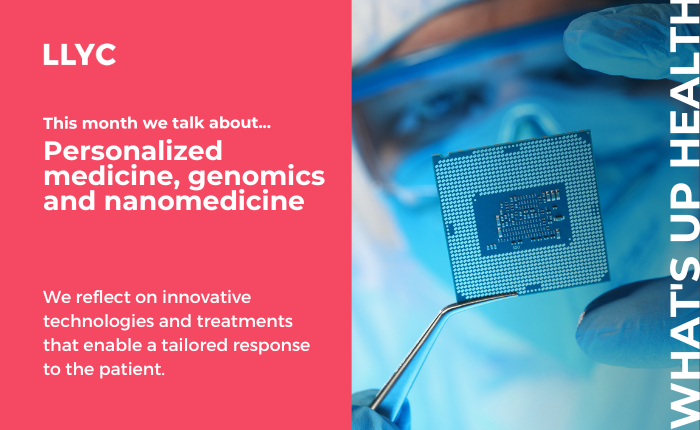
-
TrendsPublications and Reports
-
CountriesArgentinaBrazilMexico
LLYC’s global Healthcare team launched ‘Personalized medicine, genomics and nanomedicine,’ a new issue in the healthcare platform ‘What’s Up Health.‘ This issue focuses on the advances being made in these fields, which are contributing to the personalization of treatments for patients; a new trend identified in the healthcare sector.
In recent years, there has been a boom in bio-nanotechnology products, especially in the Latin American market. In countries such as Argentina, this sector represents the country’s third largest export, with a growth of almost 20% in a single year, according to official INDEC data. The boost in nanomedicine development is also seen in Brazil and Mexico.
Despite the boom, there are still many challenges for companies and startups: obtaining funding to support research and develop prototypes, and finding suppliers who understand the product and are willing to expand their technological capabilities to open new paths. María Eugenia Vargas, CEO of LLYC Argentina, who also identifies the most cutting-edge biotech startups in the Argentine market, talks to us about this.
Genomic medicine is also undergoing significant progress. Dr. Ana Vivancos, head of the Cancer Genomics group at the Vall d’Hebron Institute of Oncology in Barcelona, shares that techniques such as next-generation sequencing are transforming the diagnosis of cancer patients and allowing the personalization of treatment.
Another recent example of personalized medicine is represented by the PHERGain study which was developed by MedSIR. Those responsible for this study share the main conclusions of the trial they carried out in which they adjusted the treatment of breast cancer according to the individual response of each patient, allowing 25% of them to be cured without the need for chemotherapy.
Read the full article in the What’s Up Health platform


